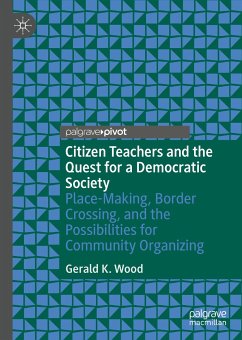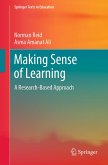"Wood's unflinching honesty on teaching is a beacon in a world rife with misinformation, capitalist exploitation, and a perpetual commitment to white supremacy. By lifting up the role of the citizen teacher, his challenge is clear: we cannot run from the problems of the world and hide in our classrooms. Instead, we must organize and build with those who know their oppression and work to abolish it permanently." -David Stovall, Professor, Black Studies and Criminology, Law, and Justice, University of Illinois at Chicago, USA
"This is an exciting book that points the way forward for educators and all who care about transforming schools towards democracy, justice, and liberation. With a compelling vision, powerful stories, and practical guidance, it shows why and how teachers can become community organizers, creating equitable schools in deep partnership with families, students, and communities. Get this book, read it, and use it!" -Mark R. Warren, Professor, University of Massachusetts Boston, USA, and author of Willful Defiance: The Movement to Dismantle the School-to-Prison Pipeline
This book explores how citizen teachers can expand our capacities to generate more equitable and just spaces with families by working as community organizers. Paying particular attention to community organizing work in one elementary school, the book weaves stories and examples with theoretical understandings to support emerging citizen teachers in creating more democratic spaces. Each chapter provides key community organizing concepts and skills and offers lessons learned to identify what worked and what did not. By building solidarity with families, citizen teachers can effectively activate more powerful practices grounded in the lives of students, their families, and their communities while articulating a broader response to the conditions impactingeducators.
Gerald K. Wood is Associate Professor of Educational Foundations in the Department of Educational Leadership at Northern Arizona University, USA. His work focuses broadly on the intersections of critical geographies and community organizing. He has worked with Industrial Areas Foundations affiliates and has been involved in broad-based organizing and youth organizing work.
Dieser Download kann aus rechtlichen Gründen nur mit Rechnungsadresse in A, B, BG, CY, CZ, D, DK, EW, E, FIN, F, GR, HR, H, IRL, I, LT, L, LR, M, NL, PL, P, R, S, SLO, SK ausgeliefert werden.
Es gelten unsere Allgemeinen Geschäftsbedingungen: www.buecher.de/agb
Impressum
www.buecher.de ist ein Internetauftritt der buecher.de internetstores GmbH
Geschäftsführung: Monica Sawhney | Roland Kölbl | Günter Hilger
Sitz der Gesellschaft: Batheyer Straße 115 - 117, 58099 Hagen
Postanschrift: Bürgermeister-Wegele-Str. 12, 86167 Augsburg
Amtsgericht Hagen HRB 13257
Steuernummer: 321/5800/1497
USt-IdNr: DE450055826
Bitte wählen Sie Ihr Anliegen aus.
Rechnungen
Retourenschein anfordern
Bestellstatus
Storno









